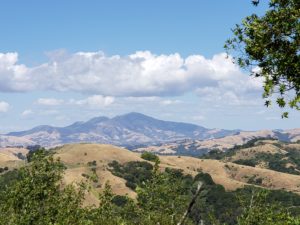 “Trauma decontextualized in a person looks like personality. Trauma decontextualized in a family looks like family traits. Trauma in a people looks like culture.” – Resmaa Menakem
“Trauma decontextualized in a person looks like personality. Trauma decontextualized in a family looks like family traits. Trauma in a people looks like culture.” – Resmaa Menakem
Most of my clients come to me with radically decontextualized suffering. It seems like their problem is just about them. People around them may have been saying it’s their personal issue, and they need to get help for it. Our culture tells us, it’s your problem – here are the ways to address it. And they try, and some of it helps, but then they get stuck. And they keep suffering.
Resmaa Menakem is an African-American therapist and author of My Grandmother’s Hands: Racialized Trauma and the Pathway to Mending Our Hearts and Bodies. Seeking to find ways forward in confronting our racist society, he teaches us that we cannot locate our suffering only in our personal history. Personal history matters a great deal, of course – our history of abuse, oppression, accident, loss, betrayal, and tragedy.
But for my clients, sharing and getting support for these histories, frustratingly, often only takes them so far in their personal healing and growth. These stories go around and around, and the more they are told, they can start to feel like good reason for hopelessness.
When a client is told for the first time that perhaps their problem doesn’t belong entirely to them, that their suffering is embedded in a larger tapestry of trauma, history, systems and culture, something truly starts to shift.
 Their personal history still matters, of course, but now it’s located in a larger reality of ancestors and systems that are both a source of unresolved suffering and unexpected strengths. We can give back to the original victims and perpetrators their experience, and ask their support in living more justly and abundantly than they did. We can find action that is more effective and empowered than before.
Their personal history still matters, of course, but now it’s located in a larger reality of ancestors and systems that are both a source of unresolved suffering and unexpected strengths. We can give back to the original victims and perpetrators their experience, and ask their support in living more justly and abundantly than they did. We can find action that is more effective and empowered than before.
This work is intensely relevant both for people struggling with serious personal suffering, and for people trying to find a way to align their lives more seriously with their values and take meaningful action. It clears the way, and returns dignity to the living.
My annual Constellations for Individuals online course starts in a few weeks. It’s a great course both for constellation facilitators who want to add to their toolkit, but also for coaches, therapists and practitioners of all stripes who have had a sense that something more is needed to help people move from a purely personal interpretation of their predicaments and needs, to a larger frame that releases and frees us in ways we’ve been longing for.
You can save $100 on the course through this Friday. We’ve already gathered a great international group of learners. Get all the details at Constellations for Individuals, and if it’s a good fit for your learning, join us.
Have you ever had the experience of discovering that something you struggled with was, in a real sense, not your problem? What was that like? Share your stories on my blog.
Thanks for this article, Leslie – such an important concept that you helped me understand much more deeply and significantly. I shared to Facebook. Also, love the pic of Mt. Diablo. This is the mountain I grew up near, so a view of it always signals “home” for me. <3
Thanks so much Amie. And although I didn’t grow up around Mt. Diablo, it feels like home now! 😉